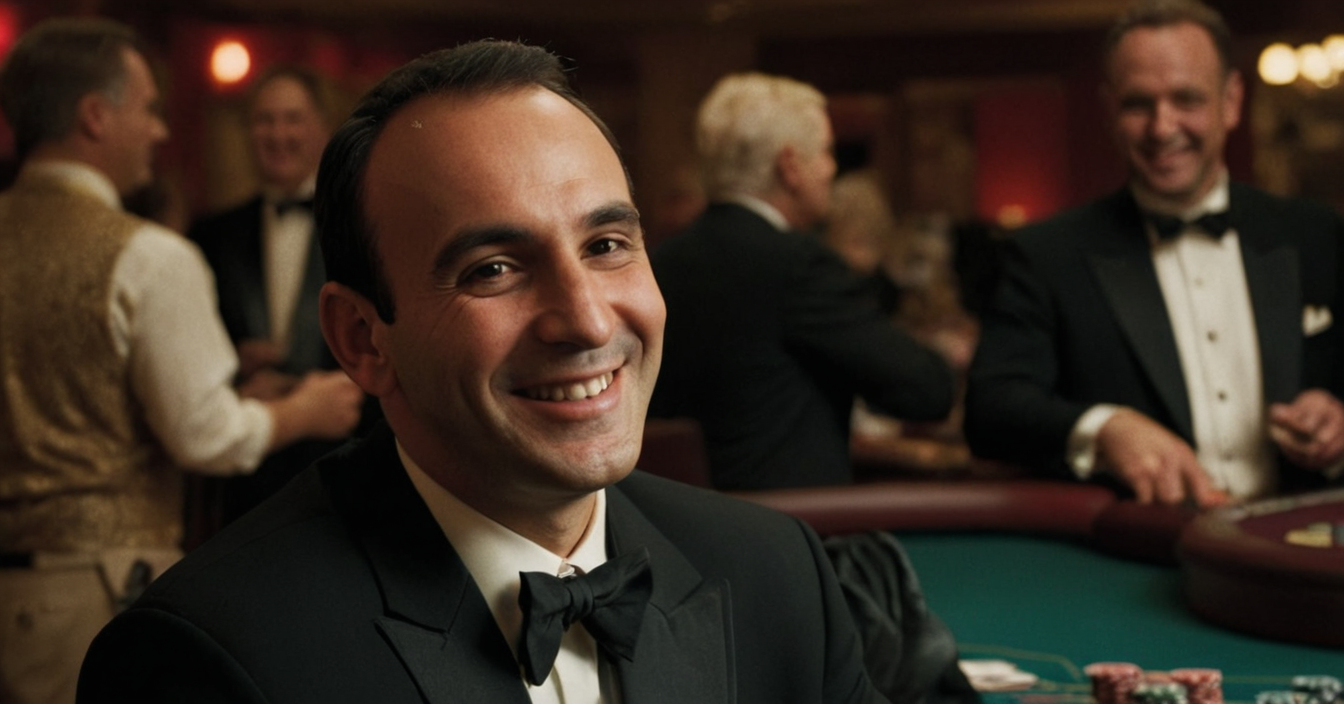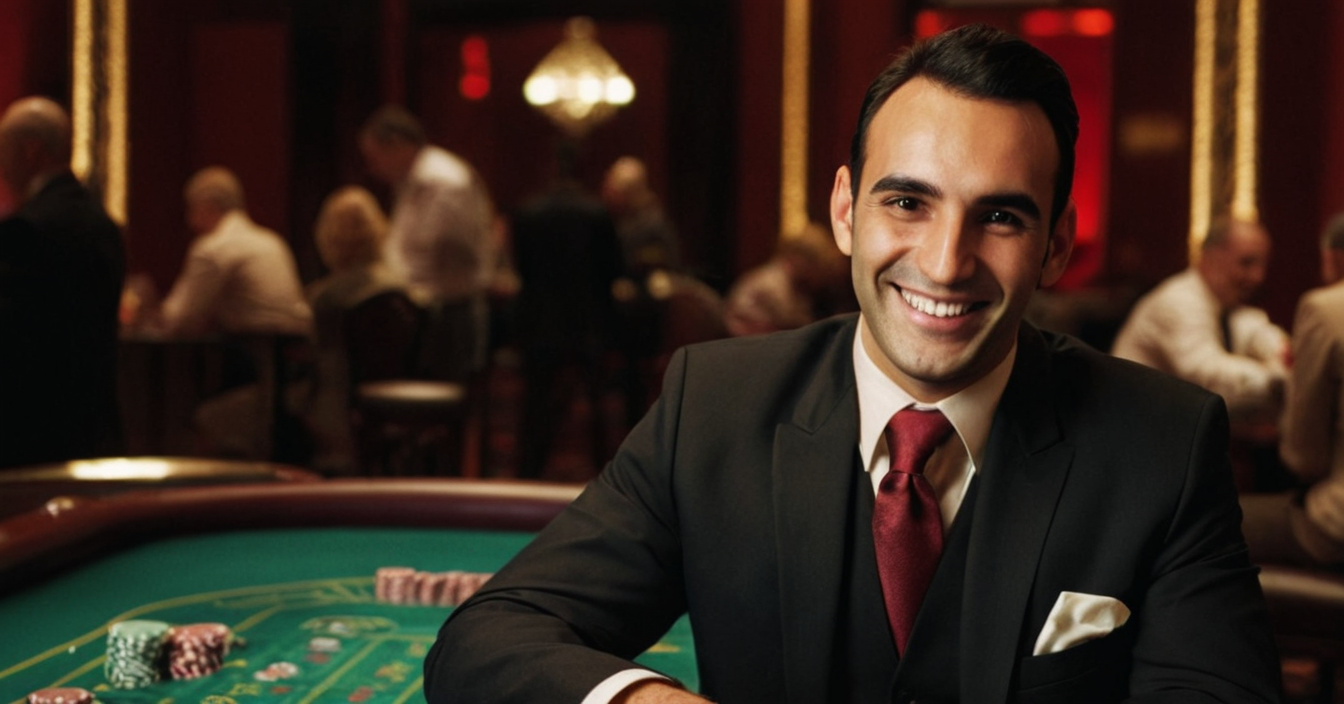The Evolution of Legal Gambling: From Prohibition to Acceptance
Gambling has always been a double-edged sword—an activity that thrills and entices, yet historically, it has also been shrouded in legal grey areas. To fully appreciate the intricacies of legal gambling today, it’s crucial to trace its evolution. Decades ago, the mere thought of placing a bet was taboo, and casinos were seen as dens of iniquity. In many parts of the world, gambling was strictly prohibited, driven underground where it thrived in smoky backrooms and on secretive phone lines.
However, as societies evolved, so did their stance on gambling. This shift wasn’t just about economic benefits—although the financial incentives played a significant role—but also about a broader societal acceptance. Governments recognized that gambling wasn’t just a vice; it was a deeply ingrained human impulse that, if regulated, could serve the public interest. From the neon-lit streets of Las Vegas to the booming online platforms today, legal gambling has transformed into a multi-billion dollar industry that commands both reverence and caution.
A Patchwork of Laws: Why Legal Gambling Looks Different Everywhere
Legal gambling is not a one-size-fits-all affair. Each country—and often, each state within a country—has its own unique set of rules governing what is allowed and what isn’t. For instance, in the United States, gambling laws are notoriously complex. Nevada might be synonymous with gambling glitz and glamour, yet just a few states over, in Utah, gambling in all forms is completely banned.
This disparity often leads to a patchwork of regulations that can confuse even the most seasoned gambler. Take the example of online gambling. In some places, placing a bet on an online casino is as easy as signing up, while in others, it’s akin to committing a crime. In Germany, online gambling is legal, but only on state-licensed platforms, whereas in Australia, the Interactive Gambling Act restricts online casinos but allows sports betting.
The reasons behind these varying regulations often reflect deeper societal values. Some regions view gambling as a harmless pastime, while others see it as a potential gateway to addiction and crime. It’s not just about the money—it’s about morality, public perception, and often, the political climate of the time.
The Dark Side: When Legal Gambling Isn’t All It’s Cracked Up to Be
Legal gambling might be above board, but it’s not without its shadows. While casinos can create jobs and contribute significantly to local economies, they can also bring unintended consequences. Take Atlantic City as an example. Once seen as the East Coast’s answer to Las Vegas, the city thrived in the 1980s and 1990s, thanks to the influx of casinos. However, with the rise of online gambling and competition from neighboring states, many of those casinos shuttered their doors, leaving behind a legacy of job loss and economic downturn.
Moreover, legal gambling often walks a fine line with addiction. A personal story comes to mind—of a friend who, despite being aware of the risks, found himself caught in the allure of poker rooms and sports betting. He started small, betting just on weekends, but soon found his weekdays consumed by the compulsion to chase losses. While he never crossed into illegal territory, the emotional toll was heavy. Legal didn’t mean safe; it merely provided a more accessible path to potential ruin.
Out-of-the-Box Perspectives: Gambling as a Metaphor for Life’s Risks

Interestingly, gambling isn’t just a pastime—it’s a microcosm of life itself. Think about it: every decision we make is a gamble. Taking a new job, moving to a new city, or even starting a relationship—each action carries an inherent risk, a wager on the unknown. The same principles that govern a poker game—calculating odds, reading people, managing resources—are applicable to everyday life.
Legal gambling, then, can be seen as a sanctioned way of practicing risk-taking in a controlled environment. It’s a space where we can experience the highs of a win and the lows of a loss, all within the confines of established rules. It’s not just about the money; it’s about the thrill of the unknown, the rush of adrenaline that comes from making a choice and watching it play out.
The Human Element: Stories from the Betting Floor
Legal gambling is more than just statistics and regulations; it’s about people. It’s the retiree who spends her Saturdays playing bingo, not for the money, but for the camaraderie. It’s the young couple at the slots, dreaming of hitting the jackpot that will allow them to start their lives together. It’s the businessman at the poker table, bluffing his way through hands as a respite from the calculated risks he takes in the boardroom.
One poignant story is of a man named Steve, who frequented a legal casino not far from his hometown. Steve was not your typical high roller; he was a school teacher who enjoyed playing blackjack on his days off. For him, the casino wasn’t about winning big; it was about the ritual—the drive there, the feel of the cards, the banter with the dealers. Steve never gambled more than he could afford to lose, and in many ways, he represented the ideal gambler: someone who understood that, win or lose, the real value lay in the experience.
Unusual Impacts: When Legal Gambling Fuels Unexpected Beneficiaries
Legal gambling often gets pegged as a vice that only fills the coffers of casinos and governments, but there are unexpected beneficiaries as well. For instance, in several U.S. states, lottery proceeds are funneled into education. The Hope Scholarship in Georgia, funded by the state lottery, has provided millions in financial aid to students who otherwise couldn’t afford college.
In the United Kingdom, a significant portion of gambling taxes goes towards funding public services and arts. The National Lottery has been instrumental in supporting cultural projects, including museums, sports facilities, and community initiatives. It’s a reminder that the money lost on a game of chance can, in a roundabout way, contribute to the greater good.
The Future of Legal Gambling: The Role of Technology and Ethics

The landscape of legal gambling is constantly evolving, driven largely by technology. Online casinos, mobile betting apps, and even virtual reality gaming platforms are reshaping how, where, and when people gamble. The rise of blockchain technology and cryptocurrencies has introduced new dimensions, offering potentially safer and more transparent gambling options, but also creating fresh challenges for regulators trying to keep up.
Yet, as we look forward, the conversation around legal gambling is shifting from mere regulation to a broader discussion on ethics. Should there be limits on how much a person can lose in a day? Should casinos have a duty of care to intervene if a player exhibits signs of addiction? These questions reflect a growing awareness that legal gambling, while profitable, must also be responsible.
A fascinating example of this is the Responsible Gambling Council in Canada, which collaborates with legal gambling operators to implement safeguards like self-exclusion programs and spending limits. These initiatives recognize that the freedom to gamble comes with the responsibility to protect those who might be vulnerable to its pitfalls.
Walking the Tightrope Between Freedom and Regulation
Legal gambling embodies the delicate balance between freedom and regulation—a testament to society’s attempt to reconcile the human desire for risk with the need for order and safety. It’s an industry built on the thrill of the unknown, yet grounded in the reality of rules and oversight. As we continue to navigate this complex landscape, it’s important to remember that, at its heart, legal gambling is about choice.
Whether it’s the weekend bingo player, the high-stakes poker enthusiast, or the casual lottery ticket buyer, each is making a personal decision to engage with chance. And while laws will continue to shape how, where, and when we gamble, the essence of the activity—its ability to mirror life’s inherent uncertainties—remains timeless. In the end, legal gambling is less about the games we play and more about the human stories that unfold on the other side of the bet.





